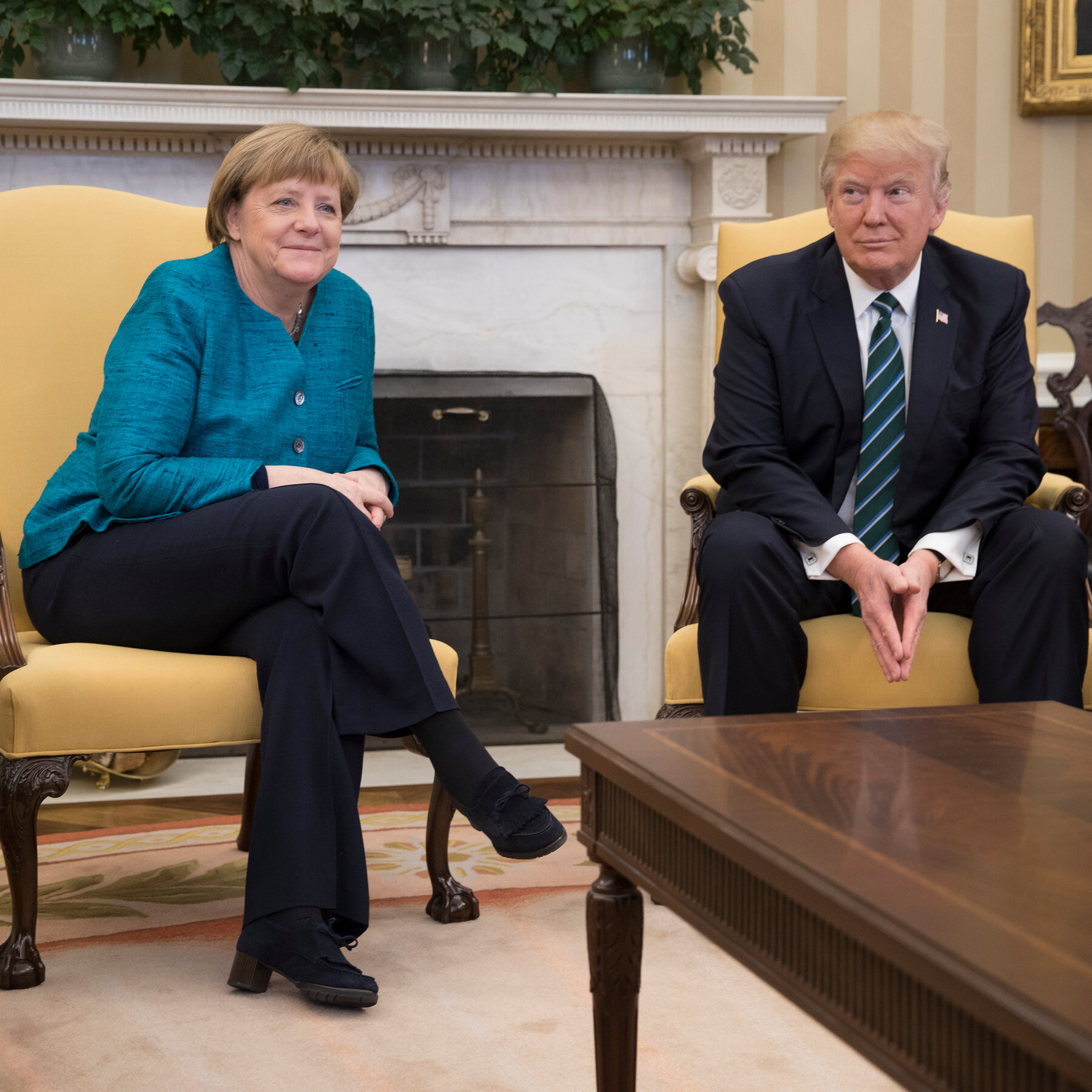Merkel Memoir Recalls What It Was Like Dealing With Trump and Putin

You have a preview view of this article while we are checking your access. When we have confirmed access, the full article content will load.
The new book by former Chancellor Angela Merkel of Germany also aims to justify decisions she made that are still affecting her country and the rest of Europe.

By Christopher F. Schuetze and Steven Erlanger
Christopher F. Schuetze covered Angela Merkel’s last term as Germany’s chancellor, and Steven Erlanger is The Times’s chief diplomatic correspondent in Europe. Both reported this article from Berlin.
Shortly after Donald J. Trump’s 2017 inauguration, Angela Merkel, who was then Germany’s chancellor, visited Washington. As the world looked on, the two leaders sat in front of an unlit fireplace, awkwardly and silently waiting for the photographers to do their work.
After hearing the photographers demand “handshake, handshake,” an urging that Mr. Trump ignored, Ms. Merkel tried herself, she relates in a new memoir. “They want to have a handshake,” she said in a hushed tone audible to the press corps just feet away.
“As soon as I said that, I shook my head mentally at myself,” Ms. Merkel wrote, according to excerpts from the memoir released this week in Die Zeit, the German weekly. “How could I forget that Trump knew exactly what effect he wanted to achieve?” she added.
Long-anticipated in Germany, the book, “Freedom: Memoirs 1954-2021,” promises the inside story of the taciturn woman many saw as the defender of a global liberal order. When the world was shocked by Britain’s vote to leave the European Union, the first election of Mr. Trump and Russia’s annexation of Crimea, Ms. Merkel exuded a kind of patient, cerebral calm that was widely seen as the bastion of an old, more predictable world order.
Since she stepped down in 2021, things have changed drastically. Russia invaded Ukraine, prompting Germany to wean itself off cheap Russian gas. Absorbing both the lack of cheap energy and a reduction of the Chinese export market, the German economy has stagnated. The country’s bridges, roads and railways, long neglected, are falling apart. And Ms. Merkel’s welcoming migration policy has led to a surge in the far right.
All of which has led to widespread unhappiness and a rethinking of Ms. Merkel’s legacy.
Ms. Merkel’s book, which is also being published in an English translation and hits bookstores on Tuesday, is expected to be more than just a fascinating first-person view from the seat of a great European power. It is also a justification for decisions she made that helped lead Germany and the rest of Europe to a perilous place.







